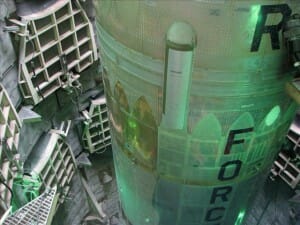

On Jan. 11, Mostafa Ahmadi-Roshan, a high-level Iranian nuclear scientist, was reportedly killed in the Iranian capital Tehran by a magnetic bomb attached to his car.
This is not the first such assassination of a high-level Iranian nuclear personnel. Nuclear physicists Massoud Ali Mohammadi and Majid Shahriari were both killed in bombings in 2010, as well as Darioush Rezaeinejad, a nuclear scientist who was shot dead in July 2011.
Perhaps more troubling for peace in the region is the revelation that Mossad, the Israeli secret service, was acting under the guise of CIA operatives to recruit Pakistani militants to carry out attacks in Iran.
I believe the Americans when they say they had nothing to do with the assassination of Ahmadi-Roshan. However, the same cannot be said of America’s allies in the region, notably Israel and Saudi Arabia, both bitter enemies of Iran.
Iran has come forward recently with “hard evidence” tying the CIA to the assassination, according to a report published by Al Jazeera. While I view with skepticism any claims by the Iranian authorities, the evidence does seem to point to foreign-backed terrorism being behind the assassination.
Israel and the United States have huge incentives to carry out such an attack and have done so in the past. Recent comments by Israeli chief of general staff, Lt.-Gen. Benny Gantz, the day after the most recent assassination, said that Iran should expect more “unnatural events” if it does not change course.
America is not interested in a conflict with Iran, as it would only exacerbate existing conflicts from Afghanistan, to Iraq, to Syria (areas where Iran can play bull in the china shop if it so chooses).
I believe that the clerics who run Iran don’t want a war. Iran’s military is no match for the Saudis or the Israelis, let alone the massive American presence in the region. (Iran spends a pithy 1.8 per cent of its GDP on military expenditures, compared with 11.2 per cent for Saudi Arabia, according to the Stockholm International Peace Research Institute).
However, if faced with a restive population, a conflict with the hated Americans or Israelis could serve to rally support for the government, much in the way that Saddam Hussein’s invasion in 1980 served to galvanize support around the hardline clerics after the Iranian revolution of 1979.
The situation that will be most crucial to watch is not the military manoeuvres in the Gulf or the bellicose rhetoric coming from Tehran and Washington, but the domestic situation in Iran itself.
With international sanctions beginning to bite, the Iranian people may become restive and demand the sort of change that is happening elsewhere in the Middle East. If this happens, the Iranian leadership may be willing to engage in riskier and more desperate tactics to hold on to power—while the rest of us just try to hold on.






